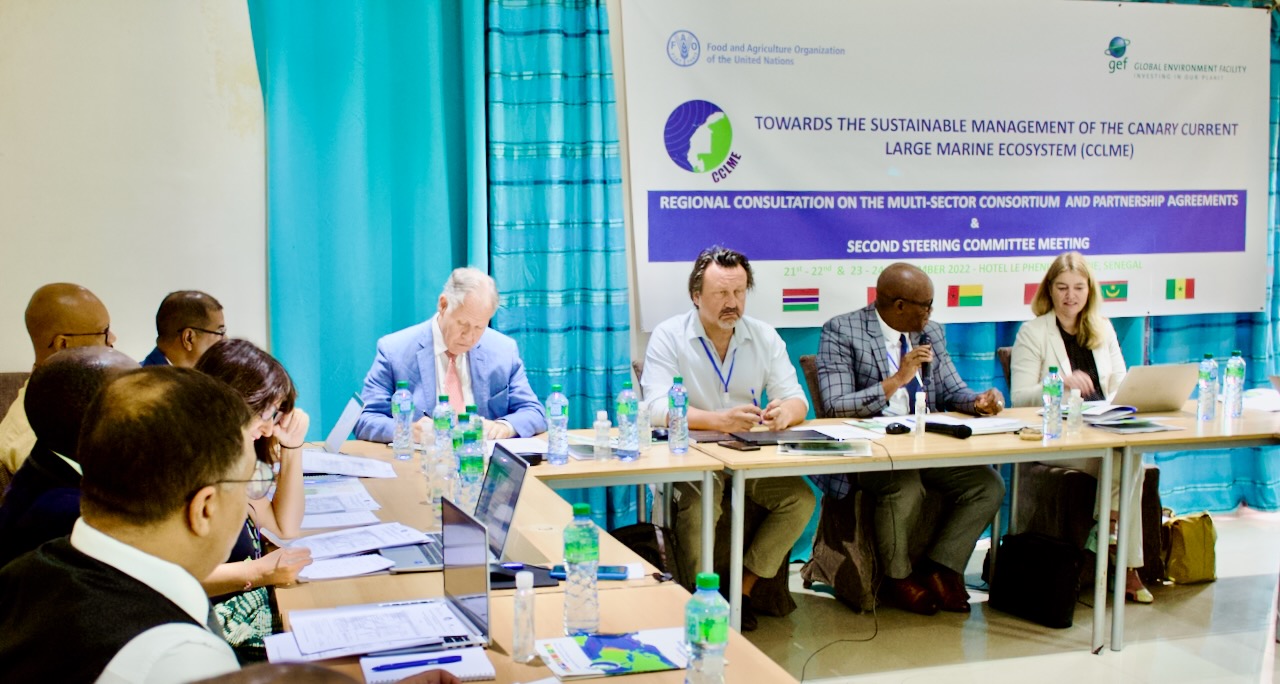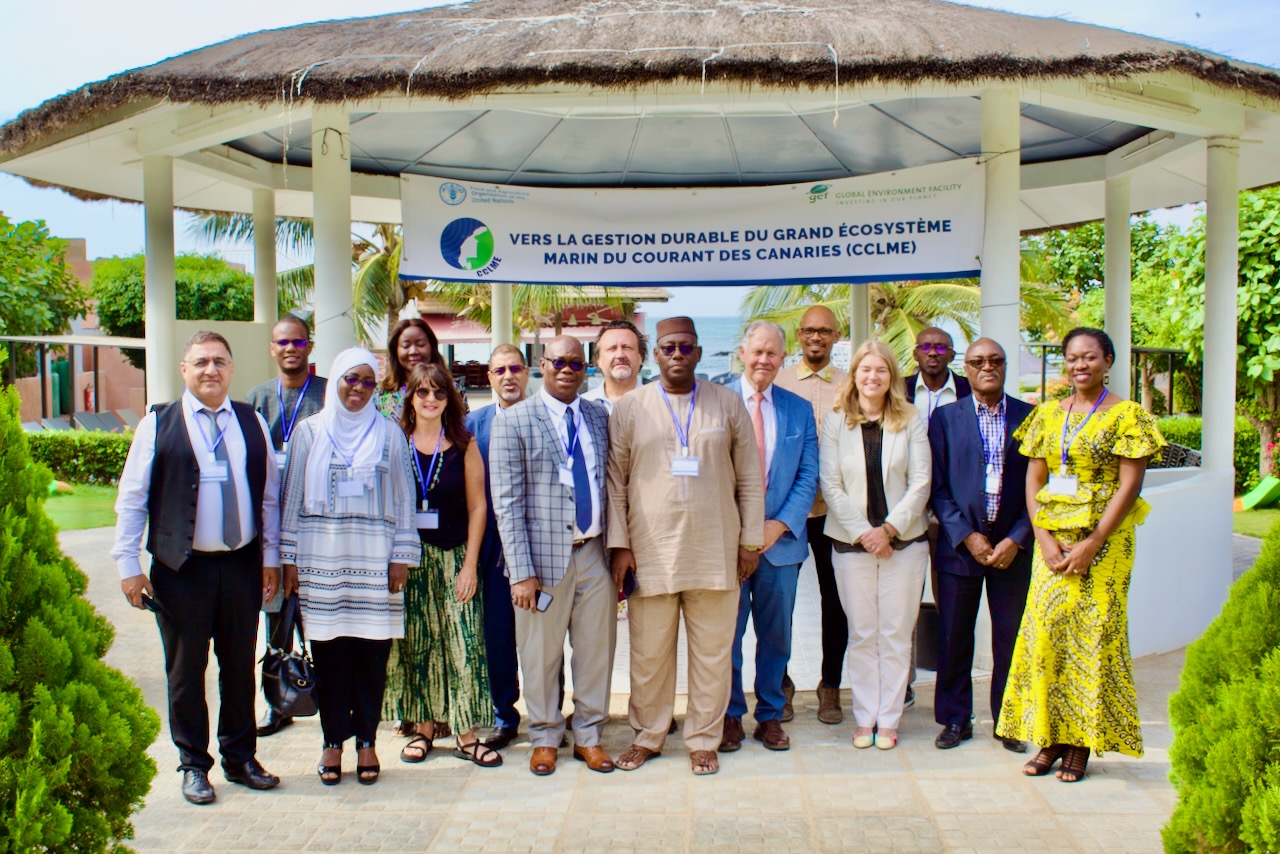CCLME's strategic partners working together for better synergies of intervention

CCLME Regional Consultation Meeting
©Ibrahim HAMA
22/11/2022
 The strategic partners of the CCLME met from 21 to 22 November 2022 in La Somone to exchange on the challenges and opportunities to create more synergies in their interventions.
The strategic partners of the CCLME met from 21 to 22 November 2022 in La Somone to exchange on the challenges and opportunities to create more synergies in their interventions.Chairing the opening ceremony of the workshop, the CCLME coordinator, Dr Aboubacar SIDIBE recalled the objectives of the meeting before urging the partners of the project to spare no effort to carry out their respective activities, in partnership with FAO within the framework of the CCLME project.
Thus, it will be for the participants to elaborate a set of recommendations, on the draft terms of reference, the roles and responsibilities of each institution/partner, clarifying how the members of the future consortium will interact. Experiences and lessons learned from other agreements will be taken into consideration in the establishment of the CCLME partnership consortium.
As a prelude to this meeting, as part of the process of preparing a Consortium and Partnership Agreement to support the implementation of the CCLME Strategic Action Programme (SAP), a series of national consultations were held from February to July 2022 in all 7 countries covered by the CCLME. These meetings reviewed the governance frameworks and partnership models for multi-sectoral collaboration and coordination in the effective implementation of the CCLME SAP at national and regional levels. The results of these national consultations will enable proposed recommendations on the consortium model and partnership agreement, clarifying intentions and responsibilities, exploring alternatives and identifying potential consortium members at national and regional level who could make commitments to contribute to specific activities in the implementation of the SAP. In addition, a gap analysis in terms of technical and institutional capacity will be an important part of this process. This gap analysis will be based on the partners' priority areas of activity, and will also serve to identify potential synergies between stakeholders, thus contributing to the successful implementation of the SAP.
The inputs and main outcomes of this meeting will feed into the work of the consultant to make relevant proposals for texts and procedures for the establishment and functioning of the regional consortium.
